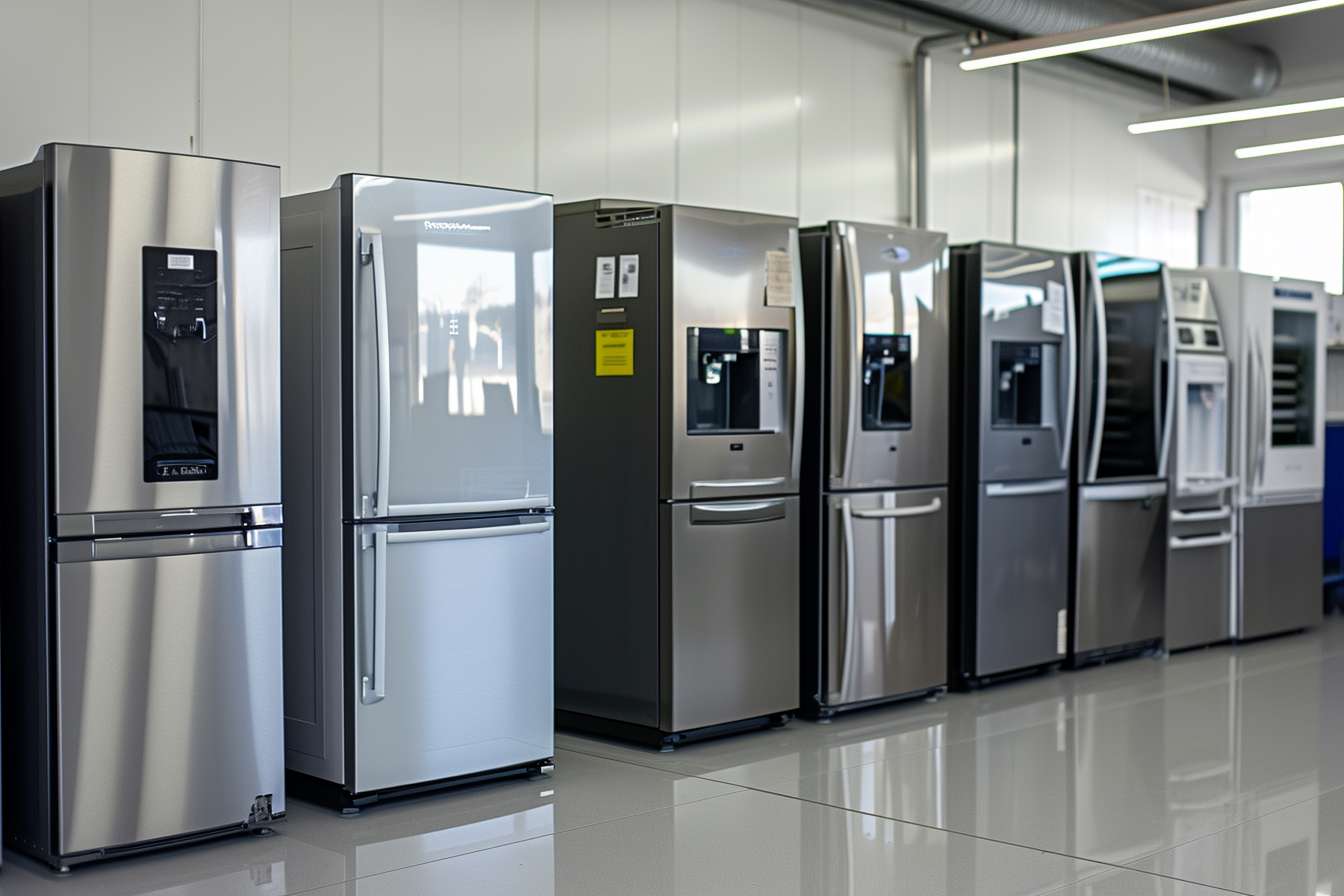Fridge Shopping in 2025: These New Features Might Change Your Mind
Thinking of upgrading your refrigerator in 2025? Today’s models are packed with surprising tech, energy-saving systems, and smart space designs. From AI inventory tracking to modular layouts and solar integration, discover how new features are transforming everyday kitchen appliances

What energy-efficient options will be available in 2025?
Energy efficiency is at the forefront of refrigerator innovation as we move towards 2025. Manufacturers are pushing the boundaries of what’s possible, with new models boasting impressive energy ratings that can significantly reduce your household’s carbon footprint and electricity bills. Advanced insulation materials and improved compressor technology are leading to fridges that consume up to 40% less energy than their predecessors from just a few years ago.
Some of the most exciting developments include:
-
Vacuum-insulated panels that provide superior insulation with less bulk
-
Variable-speed compressors that adjust cooling power based on demand
-
Solar-ready refrigerators that can be directly connected to home solar systems
-
Thermoacoustic cooling technology that eliminates the need for harmful refrigerants
These advancements not only benefit the environment but also translate to substantial savings for consumers over the lifetime of the appliance.
How are smart features revolutionizing refrigerator use?
Smart technology is transforming refrigerators from passive appliances into active participants in our daily lives. By 2025, we can expect to see a wide array of intelligent features that make food storage and kitchen management more convenient and efficient than ever before.
Some of the most anticipated smart features include:
-
AI-powered inventory tracking systems that can automatically generate shopping lists
-
Cameras and sensors that monitor food freshness and alert you to items nearing expiration
-
Touch screens with recipe suggestions based on the ingredients you have on hand
-
Voice-activated controls for hands-free operation
-
Integration with smart home ecosystems for seamless connectivity
These smart features not only add convenience but can also help reduce food waste by keeping you informed about the contents of your fridge and their freshness.
What compact fridge models are ideal for small kitchens?
As urban living spaces continue to shrink, the demand for compact yet functional refrigerators is on the rise. Manufacturers are responding with innovative designs that maximize storage capacity without sacrificing features. In 2025, we can expect to see a range of space-saving options tailored for small kitchens.
Some notable compact fridge innovations include:
-
Modular designs that allow for customizable configurations
-
Drawer-style refrigerators that can be installed under countertops
-
Slim-profile models with depths as narrow as 24 inches
-
Convertible zones that can switch between refrigerator and freezer modes
These compact models prove that you don’t need a large kitchen to enjoy the benefits of modern refrigeration technology.
Which must-have fridge innovations will dominate in 2025?
As we look towards 2025, several game-changing innovations are set to become standard features in high-end refrigerators. These advancements focus on improving food preservation, convenience, and overall user experience.
Key innovations to watch for include:
-
UV sanitization technology to eliminate bacteria and extend food freshness
-
Self-cleaning surfaces that use nanotechnology to repel dirt and smudges
-
Magnetic cooling systems that are more efficient and environmentally friendly
-
Augmented reality displays that provide nutritional information and meal planning assistance
-
3D food printing capabilities for on-demand snacks and garnishes
These features represent the cutting edge of refrigerator technology and are likely to set new standards for what consumers expect from their kitchen appliances.
How do current fridge prices compare to future models?
Understanding the pricing landscape for refrigerators in 2025 is crucial for consumers planning their purchases. While exact prices can fluctuate based on various factors, we can provide a general overview of how current models compare to anticipated future offerings.
| Feature Category | Current Model Price Range (2023) | Estimated 2025 Price Range |
|---|---|---|
| Basic No-Frills | $500 - $1,000 | $400 - $900 |
| Smart Features | $1,500 - $3,000 | $1,200 - $2,500 |
| Energy-Efficient | $1,000 - $2,500 | $800 - $2,000 |
| Compact Models | $300 - $1,200 | $250 - $1,000 |
| High-End Premium | $3,000 - $10,000+ | $2,500 - $8,000+ |
Prices, rates, or cost estimates mentioned in this article are based on the latest available information but may change over time. Independent research is advised before making financial decisions.
It’s important to note that while initial costs for advanced models may be higher, the long-term savings from improved energy efficiency and food preservation can offset the investment over time.
What factors should you consider when comparing fridges?
When comparing refrigerators, it’s essential to look beyond just the price tag. Several key factors can impact both the immediate and long-term value of your purchase:
-
Energy Efficiency: Look for ENERGY STAR certified models and compare annual energy consumption figures.
-
Storage Capacity: Consider your household size and shopping habits to determine the right capacity.
-
Smart Features: Evaluate which smart capabilities align with your lifestyle and needs.
-
Size and Fit: Measure your kitchen space carefully to ensure the fridge will fit comfortably.
-
Warranty and Service: Check the warranty terms and availability of service in your area.
-
Noise Levels: Consider the decibel rating, especially for open-plan living spaces.
-
Cooling Technology: Compare traditional compressor systems with newer, more efficient alternatives.
-
Customization Options: Look for models with adjustable shelving and temperature zones.
By carefully weighing these factors, you can make an informed decision that balances cost, features, and long-term value.
As we approach 2025, the refrigerator market is set to offer an exciting array of options that cater to diverse needs and preferences. From energy-efficient powerhouses to smart, compact models perfect for urban dwellers, the future of refrigeration is looking cooler than ever. By staying informed about these advancements and considering your specific requirements, you’ll be well-equipped to choose a fridge that not only meets your needs today but also embraces the innovations of tomorrow.




